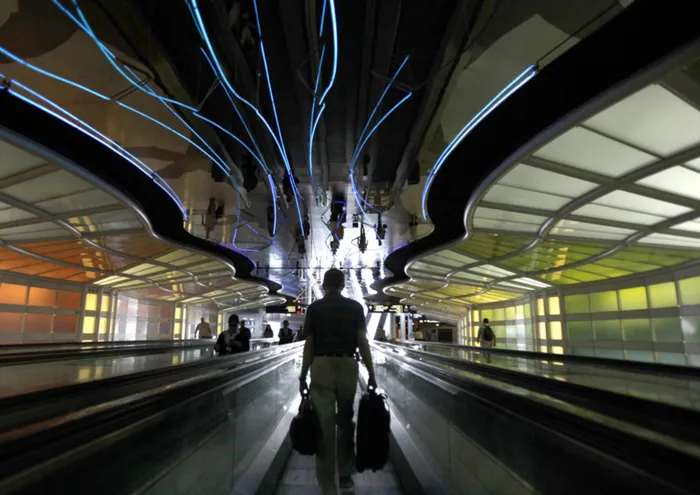US to allow small knives onto airplanes

Airlines have for years tried to shunt business to their own sites, because tickets sold via online travel agencies cost them booking fees, travel-agency commissions and other so-called 'distribution costs.' Airlines have for years tried to shunt business to their own sites, because tickets sold via online travel agencies cost them booking fees, travel-agency commissions and other so-called 'distribution costs.'
Washington - The US Transportation Security Administration said that travellers can soon bring small pocket knives on board airplanes for the first time since the Sept. 11 attacks, sparking outrage from flight attendants who said the decision would endanger passengers and crew.
The TSA said effective April 25, it would allow small knives with blades that are 2.36 inches (6cm) or less in length and less than 1/2 inch (1-1/4cm) wide. Other items that will be allowed on board again as part of a passenger's carry-on luggage include billiard cues, ski poles, hockey sticks and lacrosse sticks.
Items that had been prohibited like razors, box cutters or knives with a fixed blade are still not allowed on board.
TSA spokesperson David Castelveter said the decision was made to bring US regulations more in line with International Civil Aviation Organisation standards and would also help provide a better experience for travellers.
“This is part of an overall Risk-Based Security approach, which allows Transportation Security officers to better focus their efforts on finding higher-threat items such as explosives,” he said.
The Flight Attendants Union Coalition, which represents nearly 90 000 flight attendants from carriers across the country, called the decision a “poor and shortsighted decision” by the TSA.
“As the last line of defence in the cabin and key aviation partners, we believe that these proposed changes will further endanger the lives of all flight attendants and the passengers we work so hard to keep safe and secure,” the coalition said in a statement.
Castelveter said the TSA has implemented a number of safety measures including reinforced cockpit doors, allowing some pilots to be armed and federal air marshals on board airplanes.
He said those measures would help ensure safety of the passengers and crew.
After the Sept. 11, 2001 hijacked airliner attacks, the US government imposed a strict set of guidelines for what could be carried on board an aircraft - some of which differed from what other countries allowed passengers to carry on airplanes. - Reuters